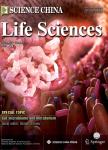L-theanine inhibits nicotine-induced dependence via regulation of the nicotine acetylcholine receptor-dopamine reward pathway
L-theanine inhibits nicotine-induced dependence via regulation of the nicotine acetylcholine receptor-dopamine reward pathway作者机构:State Key Laboratory of Brain and Cognitive Science Institute of Biophysics Chinese Academy of Sciences Beijing 100101 China Department of Food Sciences and Technology Harbin Institute of Technology at Weihai Weihai 264209 China Institute of Molecular Neurobiology Hebei Normal University Shijiazhuang 050016 China
出 版 物:《Science China(Life Sciences)》 (中国科学(生命科学英文版))
年 卷 期:2012年第55卷第12期
页 面:1064-1074页
核心收录:
学科分类:0710[理学-生物学] 1007[医学-药学(可授医学、理学学位)] 07[理学] 071006[理学-神经生物学] 10[医学]
基 金:supported by the National Natural Science Foundation of China (Grant No. 30870587) National Basic Research Program of China from the Department of Science and Technology of China(Grant No. 2006CB500700)
主 题:nicotine addiction L-theanine nicotine acetylcholine receptor (nAChR) dopamine conditioned place preference (CPP)
摘 要:In this study, the inhibitory effect of L-theanine, an amino acid derivative of tea, on the rewarding effects of nicotine and its underlying mechanisms of action were studied. We found that L-theanine inhibited the rewarding effects of nicotine in a con- ditioned place preference (CPP) model of the mouse and reduced the excitatory status induced by nicotine in SH-SY5Y cells to the same extent as the nicotine receptor inhibitor dihydro-beta-erythroidine (DHI3E). Further studies using high performance liquid chromatography, western blotting and immunofluorescence staining analyses showed that L-theanine significantly in- hibited nicotine-induced tyrosine hydroxylase (TH) expression and dopamine production in the midbrain of mice. L-theanine treatment also reduced the upregulation of the ~4,132 and c^7 nicotine acetylcholine receptor (nAChR) subunits induced by nico- tine in mouse brain regions that related to the dopamine reward pathway, thus decreasing the number of cells that could react to nicotine. In addition, L-theanine treatment inhibited nicotine-induced c-Fos expression in the reward circuit related areas of the mouse brain. Knockdown of c-Fos by siRNA inhibited the excitatory status of cells but not the upregulation of TH induced by nicotine in SH-SY5Y cells. Overall, the present study showed that L-theanine reduced the nicotine-induced reward effects via inhibition of the nAChR-dopamine reward pathway. These results may offer new therapeutic strategies for treatment of to- bacco addiction.



